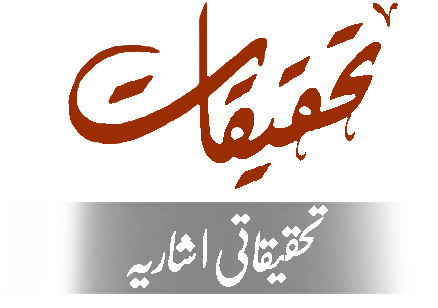مقالے کی معلومات
جلد
شمارہ
مقالے کی قسم
زبان
تاریخِ موصولہ
تاریخِ قبولیت
تلخیص
Objective: This cross-sectional study was conducted to assess the
association of the current nutritional status of children aged 3-24 months
with maternal knowledge, attitude and practices (KAP) of child feeding
and health care in District, Peshawar, Pakistan.
Method: A sample size of 200 mothers and their infants were selected from
the community. Structured and semi-structured questionnaires were used
to collect data on socio-demographic status, maternal KAP and child
feeding complication and medical history. All children’s anthropometric
measurements were taken using standard procedures.
Results: Majority (96.5%) of the mothers considered that breast milk is
important for child health; however 48% of mothers knew recommended
duration of exclusive breastfeeding. Thirty nine percent of the mothers
believed that child should be given prelacteal feed. More than half of the
mothers showed positive attitude towards formula feeding (53.5%). Results
on maternal practices showed that 30.5% of the mothers initiated
breastfeeding within 1 hour while 28.5% practiced exclusive breastfeeding
till the age of 6 months. Multiple logistic regression analysis identified parity
(p<0.05), family income (p<0.05), mother attitude towards child growth
monitoring (p<0.05), short length of exclusive breastfeeding i.e. <6 months
(p<0.05) and early introduction of complementary feeding i.e. <6 months
(p<0.05), mother MUAC (p<0.05) and history of fever in the last months
(p<0.05) as risk factors for child current under nutrition.
Conclusion: It is concluded that maternal attitude and practices
regarding child feeding and healthcare as well as their socio-economic
and nutritional status play an important role in child nutritional status.
Bibi Hajira, Zia ud Din, Imran Khan. (2016) Knowledge, Attitude and Practices (KAP) of Mothers Regarding Infant Feeding and Its Effect on Child Nutritional Status, Pakistan Pediatric Journal, Volume 40, Issue 2.
-
Views
914 -
Downloads
57


